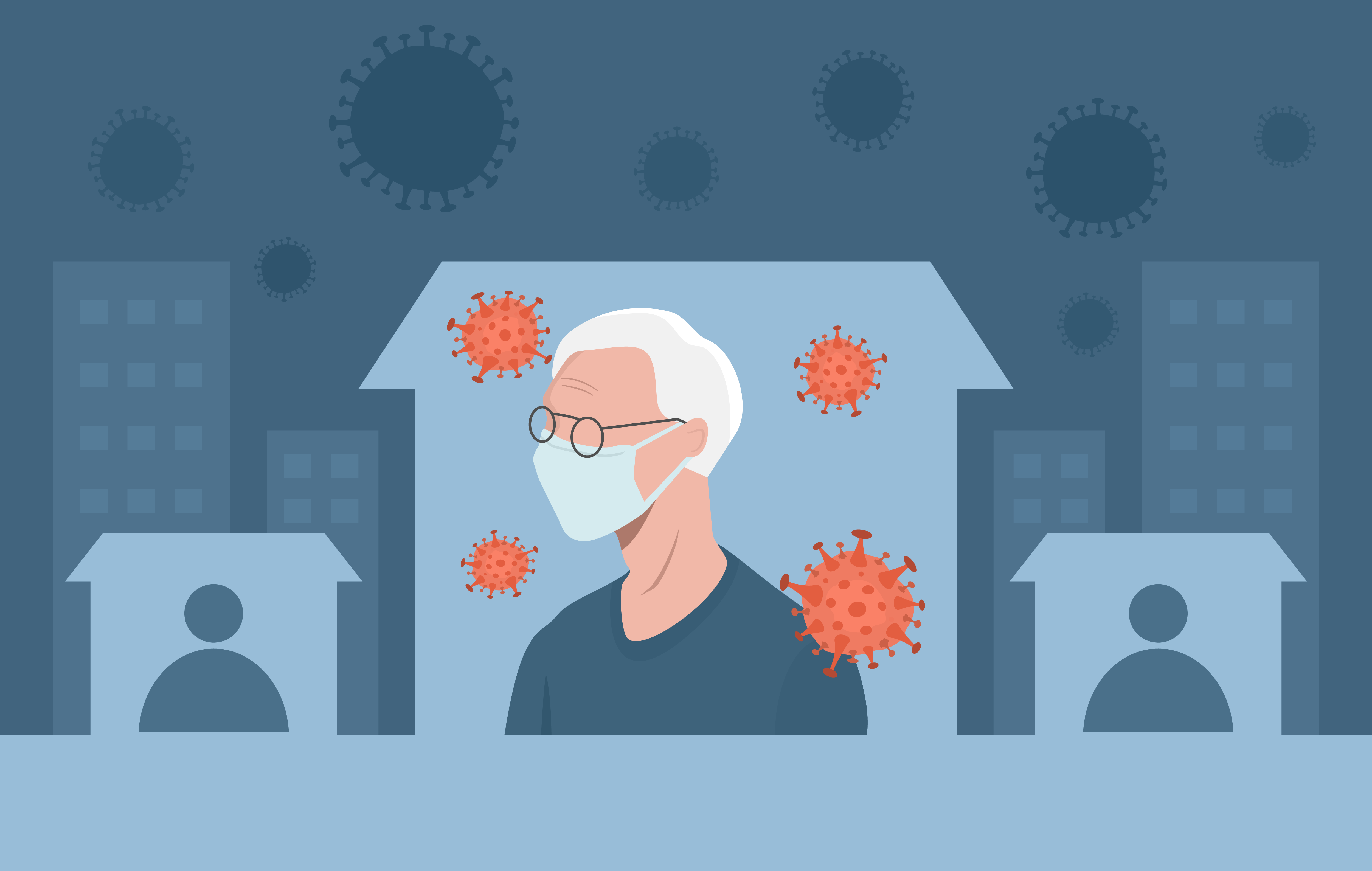
On March 22, 2020, Dr. Amy Acton, Director of the Ohio Department of Health, issued a “Director’s Order that All Persons Stay at Home Unless Engaged in Essential Work or Activity” (the “Order”). The Order generally orders Ohioans not to leave their homes except where absolutely necessary or where engaged in essential work or activity. The Order becomes effective on Monday, March 23, 2020 at 11:59 P.M. and, as of the time of initial issuance, expires April 6, 2020 at 11:59 P.M. The key components of the Order are as follows:
Stay at Home
Generally, if you are an Ohio resident, you are ordered to stay at home throughout the duration of the Order. There are many exceptions, including one for shared or outdoor spaces, where you should stay at least 6 feet away from any others who are not family or household members. There are also exceptions for engaging in what the State deems “Essential Activities” and “Essential Businesses and Operations” (each defined below). Under the Order, hotels, motels, shared rental units, shelters, and your residence are considered your “home.”
Non-Essential Business and Operations Must Cease
All businesses not deemed “Essential Businesses and Operations” (“Essential Businesses”) must cease all activities in Ohio, except that “Minimum Basic Operations” (defined below) may be conducted by businesses that are not Essential Businesses as long as employees comply with the social distancing requirements. Businesses which are already conducted from home may continue to operate in that manner. Essential Businesses are encouraged to remain open for business, as long as the 6-foot social distancing policy is followed by those present.
- “Minimum Basic Operations” means the minimal necessary activities to maintain the value of the business’s inventory, preserve the condition of physical plant and equipment, ensure security, process payroll and employee benefits, and other related functions.
- “Minimum Basic Operations” also includes the minimum necessary activities needed to facilitate employees working from home.
Prohibited Activities
All public and private gatherings of any number of people outside of a single household or living unit are prohibited, unless specifically exempted by the Order. Any gathering of more than 10 people is prohibited, again except as exempted by the Order. Members of a household or residence are not prohibited from gathering. “Places of public amusement,” which includes amusement parks, aquariums, zoos, bowling alleys, movie theaters, country clubs, and social clubs, are ordered to be closed.
Prohibited and Permitted Travel
You may only travel for Essential Activities and Essential Travel (defined below), or to maintain an Essential Business out of the State. Also, you must maintain social distancing on public transit. Essential Travel includes any travel relating to:
- The provision of or access to Essential Activities, Essential Government Functions (defined below), Essential Businesses, and/or Minimum Basic Operations;
- Travel to care for others;
- Travel to and from education institutions for the purpose of receiving materials for distance learning;
- Travel to return home from outside the State;
- Travel from the State to return to home that is outside the State; and
- Travel required by court order or law enforcement.
Essential Activities
There are five “Essential Activities” for which all persons are permitted to leave their homes:
- For health and safety (such as obtaining emergency services or medicine);
- For necessary supplies and service (including groceries, household consumer products, supplies you need for working from home, automobile supplies, etc.);
- For outdoor activities like walking, hiking, or running;
- To perform work for an Essential Business; and
- To take care of others, such as family members, friends, or pets in another household (note that this also includes attending weddings and funerals).
Essential Businesses
As mentioned, Essential Businesses are not required to cease operations under the Order. Essential Businesses include:
- Stores that sell groceries and medicine, including their supply chain and administrative operations. (This includes farmers’ markets, convenience stores, pet supply stores, and liquor stores.)
- Food and beverage manufacturing, processing, producing, and cultivating businesses.
- Organizations that provide charitable and social services, such as food banks and shelters.
- Religious entities.
- Media, including newspapers, televisions, and radio.
- First amendment protected speech. (It is unclear what this entails, but it likely includes activities such as public protest.)
- Gas stations and auto supply/repair businesses.
- Financial and insurance institutions such as banks, credit unions, appraisers, title companies, financial markets, insurance underwriters, insurance brokers, and insurance agents.
- Hardware and supply stores.
- Critical trades such as builders and contractors, plumbers, electricians, exterminators, cleaning and janitorial staff for commercial or government properties, security staff, painters, movers, etc.
- Businesses providing mail, posting, logistics, delivery, and pick-up services.
- Educational institutions, but only for the purposes of providing distance learning, providing critical research, or providing other essential functions.
- Laundry services.
- Restaurants, but only to the extent providing food for off-site consumption.
- Businesses that sell home-office supplies.
- Businesses that sell supplies and services for Essential Businesses, such sellers of computers and IT services, audio and video equipment, electrical, plumbing, and HVAC services, etc.
- Professional services such as legal, accounting, insurance, and real estate services.
- Transportation businesses, such as airlines, taxis, “transportation network providers” (e.g., Uber and Lyft), and car rental services.
- Home-based care services.
- Residential facilities and shelters, including those for pets.
- Critical labor union functions.
- Manufacturing, distribution and supply chain businesses to the extent necessary for providing critical products and serving critical industries.
- Hotels and motels.
- Businesses providing funeral services.
Other Permissible Operations
- Persons are allowed to leave their homes to work for or obtain services from health care and public health operations, which include hospitals and veterinary and medical clinics, but also manufacturers of medical equipment and the like.
- Persons are allowed to leave their homes to work for or obtain services from “Human Services Operations,” which include long-term care facilities, daycare centers, shelters, settings which provide services to the developmentally or intellectually disabled, those with mental illness or substance use disorders, or the elderly, as well as other organizations such as food banks and other entities which provide services to the economically disadvantaged.
- Persons are allowed to leave their homes to provide work for “Essential Infrastructure,” which includes food production and distribution, utilities maintenance, construction, gas stations, waste collection, cybersecurity, roads and other means of transportation, internet and telecom systems, and others.
- · Persons who serve “Essential Government Functions” are exempt from the Order. Examples of persons who provide Essential Government Functions include first responders, emergency management personnel, dispatchers, legislators, court personnel, jurors, and judges, law enforcement personnel, and military personnel.
Social Distancing
The Order requires all people to stay at least 6 feet away from others, washing hands with soap and water for at least 20 seconds or using hand sanitizer, covering coughs and sneezes, cleaning surfaces, and not shaking hands. Essential Businesses and those engaging in Minimum Basic Operations must take the following measures with respect to social distancing:
- Requiring 6-foot distances between persons at work;
- Providing hand sanitizer and sanitizing products (e.g., surface wipes);
- Providing separate operating hours for vulnerable populations (including employees and customers/clients); and
- Posting online whether a facility is open and how best to reach the facility and continue services by phone or remotely.
Penalties for Violating the Order
Violation of the Order is a second-degree misdemeanor and can be enforced by Ohio public health departments and local police. You can be arrested for a violation. Second degree misdemeanors are punishable by up to 90 days in jail and a maximum $750 fine.
Please note that the Order contains certain other rules and additional example of Essential Businesses. Therefore, we encourage you to read the entire Order. If you have any questions about the Order or any other matter relating to the COVID-19 pandemic, please contact your Carlile Patchen & Murphy LLP attorney.





0 Comments